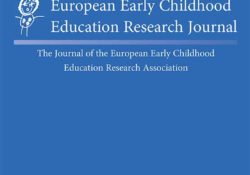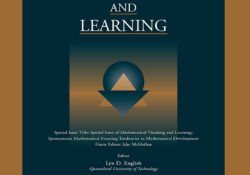eric.ed.gov har udgivet: Latino students, as children of historically underachieving populations, often have their academic success in jeopardy. For many schools, after-school programs complement the regular school day, with more than half of the 49,700 U.S. elementary schools having one or more on-site programs. Such programs vary in intent, purposes, and resources and typically emphasize remediation rather than developing interests or competencies in curricular areas beyond language arts and math. This qualitative case study explores the practices of one dual language elementary school in a high poverty Latino community and its academic/enrichment extended day program. Wenger’s (1998) community of practice framework captures the mutual engagement, joint enterprise, and shared repertoire of practices tightly woven between the regular school day’s classroom teachers and the after-school instructional assistants. This investigation provides insight… Continue Reading →
Like this:
Like Loading...
eric.ed.gov har udgivet: The Integrated Day Teacher Education Program is an attempt to create a model for teacher preparation which will make schools healthy places for teachers and children. It is sensitive to the criticisms leveled at teacher education by observers such as Silberman and attempts to lead teachers to share in decision making, participate actively in learning, and become independent learners in their own right. During the workshop semester, up to 50 undergraduates join 15 or so graduate students in a series of learning experiences which have replaced the conventional methods and curriculum courses. These preservice teachers earn 18 hours of credit for participating in activity-oriented workshops in Multi-Arts, Math and Science, Language Arts and Reading, Curriculum Building, Social Studies, and Human Relations. Workshops are offered during two-and-a-half-hour blocks… Continue Reading →
Like this:
Like Loading...
tandfonline.com har udgivet en rapport under søgningen „Teacher Education Mathematics‟: ABSTRACT ABSTRACT Educational policies increasingly emphasise early childhood science engagement. As key influencers in children’s early learning, parents (n = 85) attending a science workshop in three urban schools in Ireland were surveyed regarding their attitudes towards science. Seventy per cent of parents believed that science education should begin in the pre-school years, before the age of four. Despite high levels of education, at least half of the parents expressed some lack of confidence in talking about, and in doing science with, their young children. Parents who reported less confidence in doing science activities with their children also reported reduced frequency of activities for five out of the seven science learning opportunities listed. Mothers, compared to fathers, reported less confidence in doing… Continue Reading →
Like this:
Like Loading...
eric.ed.gov har udgivet: The U.S. has had a proud history of inventions and innovations since colonial times, but the future of its intellectual capital is now at risk. America’s size, natural resources and historical role as a superpower are no longer enough to ensure its economic future. In today’s global economy, the U.S. is losing many of its previous competitive advantages. Upgrading the knowledge and skills of its workforce is critical. U.S. students must have the relevant knowledge of science, technology, engineering and math (STEM) to become a more competitive workforce. Until 2007, there was no organized national response from the private sector to this competitiveness challenge. The National Math and Science Initiative (NMSI) was launched in March 2007 by top leaders in American business, education and science in response… Continue Reading →
Like this:
Like Loading...
eric.ed.gov har udgivet: In many parts of the world, Pi Day is celebrated on March 14 (3.14), but because of the day-month ordering of dates in Australia, and because March is very close to the start of the academic year, Australians prefer to celebrate Pi (Approximation) Day on 22 July (22/7). Thirty-eight Year 8 students (aged 13-14 years) from two local high schools in Canberra, Australia, joined ESTeM Maths and Education staff on July 22, 2014, to celebrate Pi Day. This article describes the activities in which the students participated during the Pi Day celebration. The organizers of the activities selected six activities that met a combined criteria of feasibility, pedagogical soundness, and pedagogical appropriateness for the Australian school system. Time constraints were a significant factor in selecting activities. The… Continue Reading →
Like this:
Like Loading...
tandfonline.com har udgivet en rapport under søgningen „Teacher Education Mathematics‟: ABSTRACT ABSTRACT In this study we investigated the effects of two naturalistic 2- to 4-year-old children’s intervention programs aimed at promoting children’s Spontaneous Focusing On Numerosity (SFON) and early numerical skills. The study consisted of a quasi-experimental, pretest-posttest design with a delayed posttest and an active control group participating in the Let’s Read and Talk program. All conditions had 6 weeks of intensive training followed by a 4-month rehearsal phase, when intervention activities were integrated into normal day care. The results of both numerical interventions in the whole group level show positive, small- to medium-sized long-term effects on cardinality-related skills from pretest to delayed posttest. The SFON tendency increased more from pretest to posttest in both studies but the group differences… Continue Reading →
Like this:
Like Loading...

